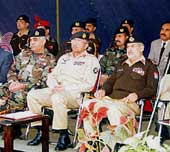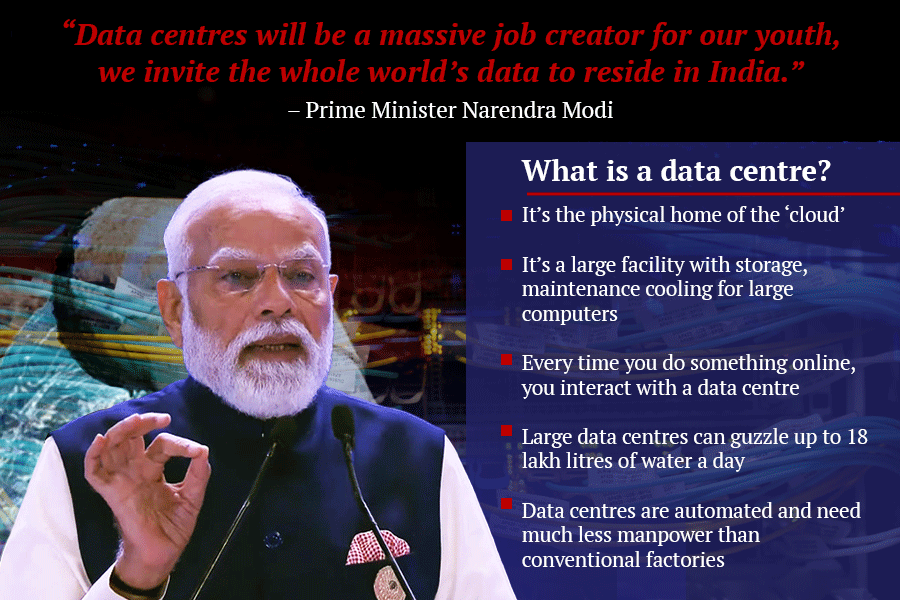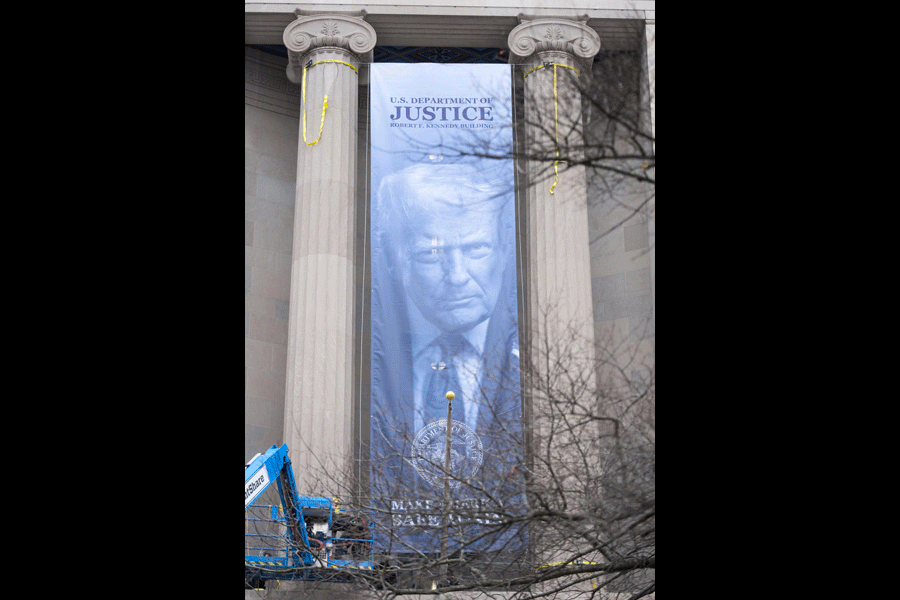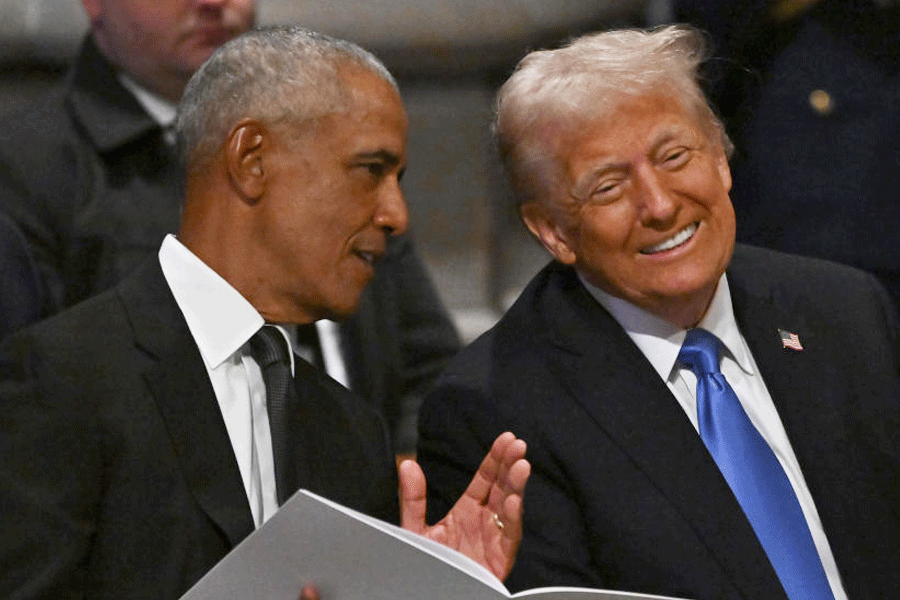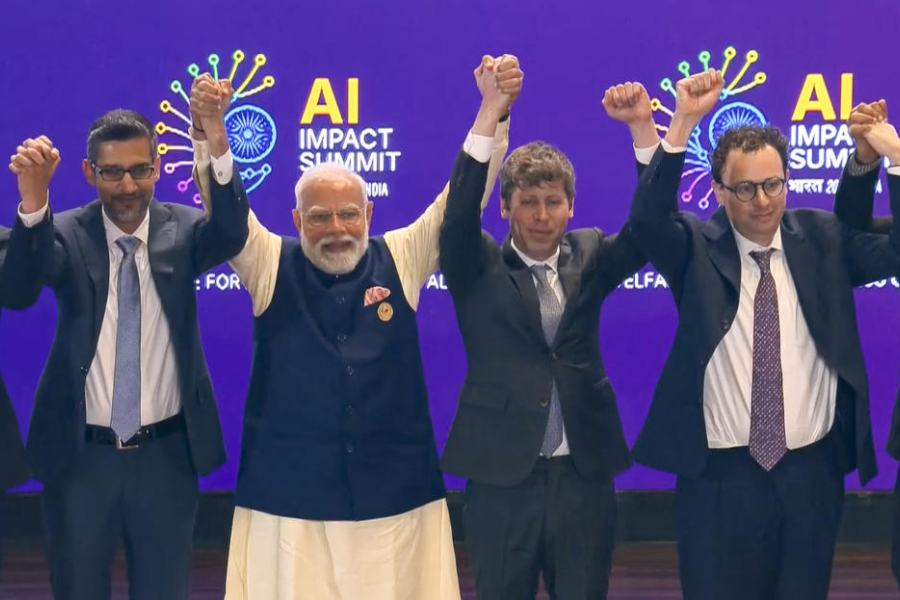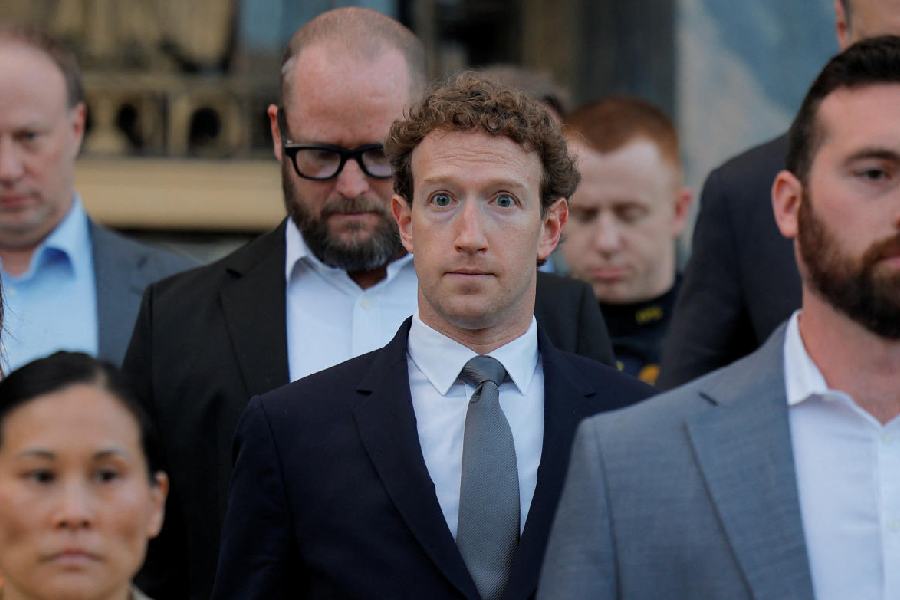|
|
| A Congress working committee meeting, July 14, 1975 |
Thirty years almost to the day since the proclamation of Indira Gandhi?s Emergency. That event had, at that moment, shaken to its roots the country?s democratic structure. But apparently not a ripple is now left in the nation?s memory. In any case, more than one half of those who constitute the nation today were yet to be born in June, 1975; several others were in their hazy infancy. Even for those who were then adult Indian citizens, the travails of daily living over the decades have extracted a price ? an incapability, or even reluctance, to indulge in introspection.
And yet, at least for some people, the sequence of happenings in that distant turbulent week are not easily cast aside from the stockpile of recollection. The verdict of the Allahabad high court, a stunned Congress unsure of what to do next, an even more unsure Indira Gandhi listening ? or perhaps not actually listening ? to the outpourings of counsel and advice from her acolytes during those raucous hours.
One of her trusted confidantes, Durga Prasad Dhar, dies of cancer the very day the court judgement is delivered. Another ?minence grise, once considered closest to her, but now a somewhat remote figure, Parameshwar Narain Haksar, dutifully turns up and does not bother to conceal his opinion: the prime minister should of course appeal to the Supreme Court, but, before she did so, she must vacate her office. The suggestion is received in hostile silence. At that juncture, the bounders take over. They help Indira Gandhi make up her mind. Why is Part XVIII there in the Constitution? Use it, arrange to declare an Emergency. Was not the evidence as glaring as it could be? The nation?s judiciary were in cahoots with a bigoted opposition, the nation was in gravest peril.
Besides, has not one of her sycophants-in-waiting already clinched the issue ? the prime minister is the nation and vice versa? The goons move centre-stage. The arrests begin soon after dusk on June 25, power is cut off from the Indraprastha Estate area to shut out the press, a near-senile Fakhruddin Ali Ahmed is rooted out of his bed in Rashtrapati Bhavan to sign the proclamation; members of the cabinet are assembled in the early hours of the morning to put post facto seal of approval on the Emergency that was already on.
That long night of knives marked a watershed of a sort. All political parties in democratic India had all along felt the necessity of keeping a clutch of musclemen under their command. But this species was scrupulously kept under wraps; they asserted their presence only on particular occasions, such as in the election season, for purposes of booth-capturing. Indira Gandhi?s Emergency changed all that; the goons openly took charge. The important point was established: constitutional proprieties are sheer bunkum, the country?s administration, including the direction of its polity and economy, would henceforth be determined by a coterie of hoodlums. Few had the moral courage to protest. Once thousands were picked up and thrown into prison; ruthless destruction of poor people?s slums, accompanied by round-the-clock festivals of vasectomy and tubectomy, added lustre to the ceremonies.
It is always debatable whether, if Indira Gandhi had not revoked the Emergency on the eve of the 1977 Lok Sabha poll, she would have experienced enormous hurdles to carry on. Indians, as a community, tend to get used to situations; they might not have felt any different about the Emergency. Perhaps this cynical statement will not have many takers. A second suggestion is, however, bound to have a wide measure of agreement: at this distance of thirty years, it is awesomely difficult to distinguish between the heroes of the Emergency and its anti-heroes.
The sickening display of feuding and factionalism by elements within the Janata Party was enough to ensure the triumphal return to power, by public acclaim, of Indira Gandhi within thirty months of her supposed eclipse for ever. One erstwhile godfather of the anti-Emergency campaign, Chaudhuri Charan Singh, fulfilled his life?s desire to be the country?s prime minister, even if for a brief six months, by cringingly seeking the support of Indira Gandhi. Some sort of a repeat took place barely a decade later when another pretender-hero of the Emergency, Chandra Shekhar, fulfilled his ambition to be prime minister leaning on the support extended by Indira Gandhi?s son; the rug was pulled from under him within three months.
Yet another of the heroes, George Fernandes, has been hard at work ever since to reduce his once-held socialist beliefs to a joke. He is now every inch a hack politician, prepared to break bread with all and sundry, as long as that last hallmark of Lohiaism ? a pathological hatred of the Nehrus ? is not put under strain. The person whose company he mostly keeps these days, Atal Bihari Vajpayee, has however wobbly credentials in this matter. Vajpayee?s anti-Emergency credentials are always somewhat suspect; he had described Indira Gandhi as Durga Bhagavati; he realized a little bit late that this particular goddess is not only the creator but also the destroyer, the Emergency merely put on show her virtuosity in the latter role.
The individual who had brought these disparate characters together to fight what he considered a magnificent moral war, Jayaprakash Narayan, would have found the post-1977 developments bizarre beyond description. Good for him, he died soon enough and was spared the spectacle of the disintegration, like a house of cards, of the anti-Emergency coalition. Perhaps one should allot a morsel of respect for the long-departed fogey, Morarji Desai, too. Morarji was not an attractive person. His views on social and economic issues were hard to stomach, but there was conceivably a core of basic honesty in him. He faded away without compromising with his dignity.
That leaves only those belonging to the left. But they were never a part of the formal network of resistance stitched by Jayaprakash Narayan, just as they are not today a part of the Untied Progressive Alliance. They applauded from the sidelines JP?s efforts to build an effective opposition to Indira Gandhi?s excesses. They were, after all, direct victims of her penchant for applying Article 356 at the drop of a hat; they were equally worried over her relentless use of the Central Reserve Police and the Central Industrial Security Force to overrun their citadels in West Bengal and Kerala.
Their views on these issues have undergone some transformations because of the exigencies of circumstances. Even so, they will readily admit that, had not Indira Gandhi?s authoritarian reign come to an abrupt interruption in the first quarter of 1977, the tenancy of the Left Front in West Bengal might have experienced both a different kind of commencement and a different span of longevity.
At this point, please inscribe a couple of sentences for Jyotirmoy Bosu. Thirty years have elapsed since the revocation of the Emergency; poor Bosu has been dead for 27 of these years. Nobody remembers him anymore, nobody remembers that, at least for over three years before the Emergency was clamped upon the country, Jyotirmoy Bosu had run a relentless one-person campaign against Indira Gandhi?s waywardness, bringing into the open, inside parliament and outside, instances of her financial and other shenanigans. History is a cruel arbiter. It takes a dim view of one-person campaigns, even if these turn out to be reasonably successful in the short run. Besides, Bosu had no business to die when he did.
Finally, if you think that the consequence of the Emergency was a wake-up call for the Congress, you are sadly mistaken. The Congress is like the avyaya in Sanskrit grammar, it never changes. For Congressmen, the chant was ?Indira is India and India is Indira? in 1975. Thirty years later, all that is needed is to substitute a six-letter name by a five-letter one, the rest is stet. The conviction that the entire terrestrial system revolves round the dynasty is unshakeable; the party?s losing its security deposit in each of the recently-held by-elections for four assembly seats in Uttar Pradesh, the sanctum sanctorum of the dynasty, has left it unfazed.

